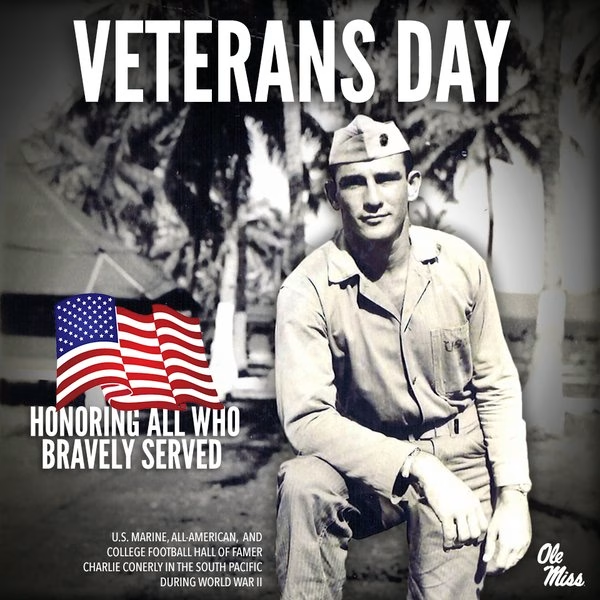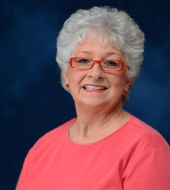By Bonnie Brown
It was November 11, 1918, when a truce was reached signaling the end of World War I.
The peace agreement was signed by several countries on the 11th hour, of the 11th day, of
the 11th month. It became known as Armistice Day.
World War I was called “the war to end all wars.” Congress voted to make Armistice Day a federal holiday in 1938. Unfortunately, World War II began in 1939. Who could have imagined that war would once again touch the four corners of the world?
Armistice Day continued to be celebrated on November 11th, following the end of World War II.
However, people began calling it Veterans Day instead of Armistice Day. President Dwight D. Eisenhower signed a bill in 1954 proclaiming November 11th each year as Veterans Day which acknowledged all American veterans of all wars.
In 1968, a law changed the national commemoration of Veterans’ Day to the fourth Monday in October to give government employees a three-day holiday. This change was not widely accepted and in 1978, Congress changed the observance back to its traditional date of November 11.
On November 11, 1919, the first celebration of Armistice Day, veterans marched in parades and were hailed as hometown heroes. In a statement from the White House acknowledging this day, President Woodrow Wilson expressed what he felt the day meant to Americans saying, in part “A year ago today our enemies laid down their arms in accordance with an armistice which rendered them impotent to renew hostilities, and gave to the world an assured opportunity to reconstruct its shattered order and to work out in peace a new and juster set of international relations.”
If only that peace had held.
Since then, there have been more—Korea, Vietnam, Lebanon, Grenada, Gulf War, Afghanistan, Iraq, and others. And to know what is transpiring even as I write this with the Israel-Hamas War raging on that has turned our attention away from the Russia-Ukraine War.
My dad, Fred Pollard, used to say he was a World War I baby and a World War II veteran. He was born in December 1918. He was proud to have served his country. He did not like to talk about the war even though my brother Fred, Jr. was really interested in learning about the war and his part in it. We knew that Dad was involved in the Allied invasion of North Africa on November 8, 1942, and in the Normandy Invasion on D-Day which began on June 6, 1944. He received a Purple Heart for his acts of bravery during this war which claimed 416,800 based on statistics provided by the National WWII Museum.
My husband’s uncle, George Lester, was also a World War II veteran. He too was reluctant to discuss the war. I remember teasing him about how he would stifle a sneeze and I told him he should just sneeze naturally. He chuckled and said it was something he learned to do and seemed pretty important when sneezing in a foxhole.
Uncle George received numerous citations and decorations including the Asiatic-Pacific Theater Ribbon with 3 Bronze Stars and the Philippine Liberation Ribbon with 2 Bronze Stars. During WWII, it was customary to display a gold star in the window of the family’s home to indicate a family member’s service. Uncle George’s mother had 10 gold stars to display with her blended family of sons and stepsons. Can you imagine fretting over 10 family members in harm’s way in a war on foreign soil!
My brother, Elmer Pollard, is a Navy veteran. He joined the Navy right out of high school. He also served in the Army Reserve for a time. He retired but I think he would return to service if he could. He was always the one to volunteer for the different assignments. He got to see a lot of the world and found himself in places like Beirut, Grenada, as well as Desert Shield/Desert Storm.
It was troubling that our son, Dennis, was also serving in the Army during Desert Shield/Desert Storm while my brother was there. To have both our son and my brother in that skirmish was worrisome for our family.
My husband Tom was in the Army during the Vietnam War but luckily was stationed in Germany and Italy.
I was a teenager during Vietnam and several of my classmates served. A friend (he was also my first boss at Ole Miss) Paul Skierkowski also served during Vietnam. He, too, was not very forthcoming about his service. I discovered during a visit to his home in Oklahoma years after he left Ole Miss that he was awarded the Purple Heart, Bronze Star, and the Air Medal. Another quiet war hero. And sad to say, returning Vietnam veterans were not celebrated as World War II veterans had been, but were subjected to very disrespectful treatment and were scapegoats for others’ mistakes.
So, on this Veterans Day, I honor the memory of my father, a World War II veteran and hero. I will think of Uncle George being in a foxhole afraid to sneeze. I will honor the memory of my former boss, Paul Skierkowski, the quiet hero. I will thank all the veterans in my family which include my husband Tom, our son Dennis, and my brother Elmer.
We should all be grateful to all veterans who have been willing to defend our country, our freedom, and our way of life. I will be forever grateful for the men and women who have signed on to serve and protect our country. I will give thanks for their willingness to put their life on the line, for enforcing our laws, for serving in so many ways. I will give thanks that they are willing to do this often at great sacrifice to themselves and their families.
I urge you to do the same.
Bonnie Brown is a retired staff member of the University of Mississippi. For questions or comments, email her at bbrown@olemiss.edu.



